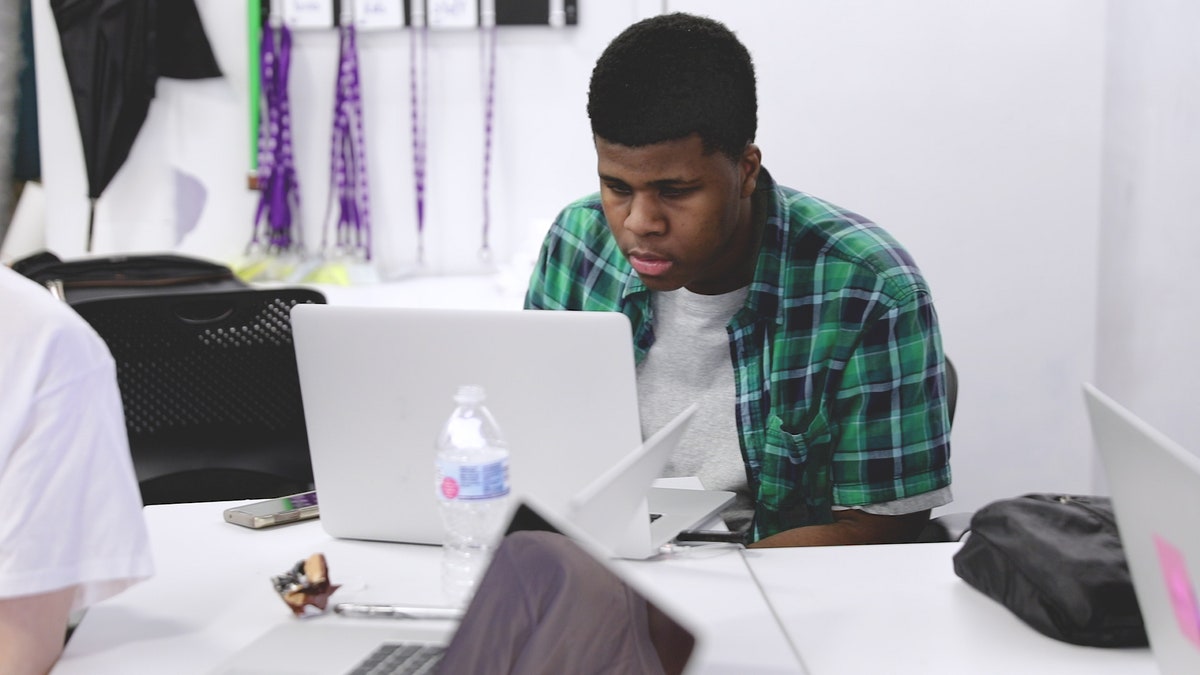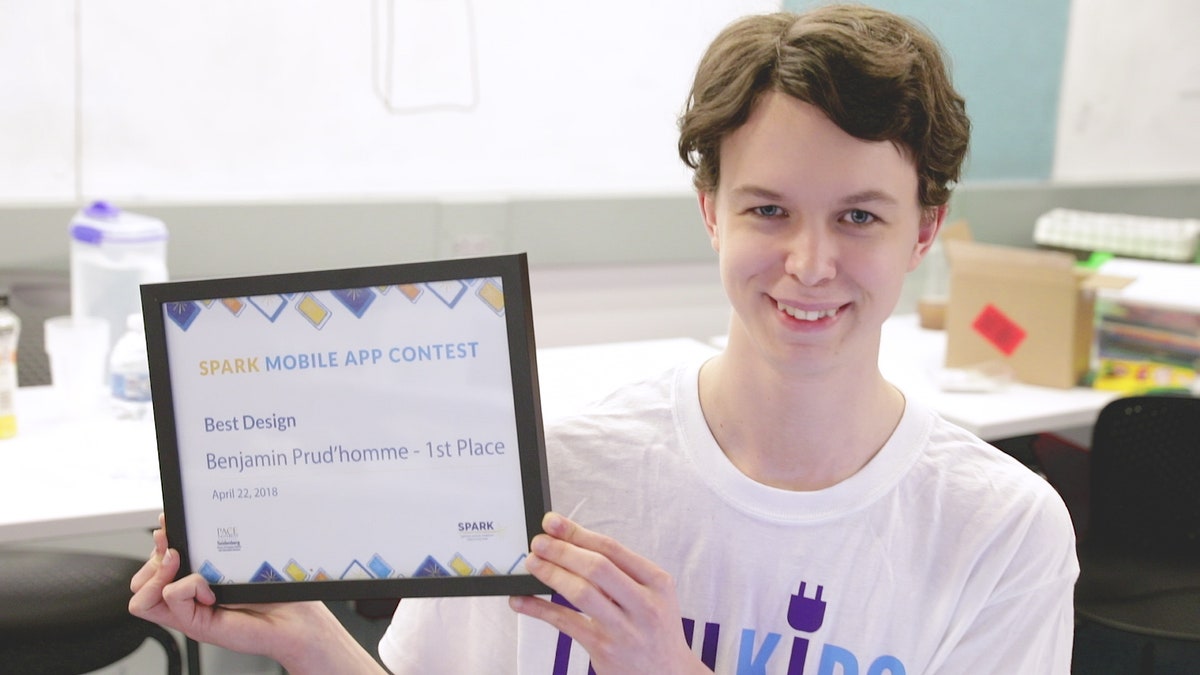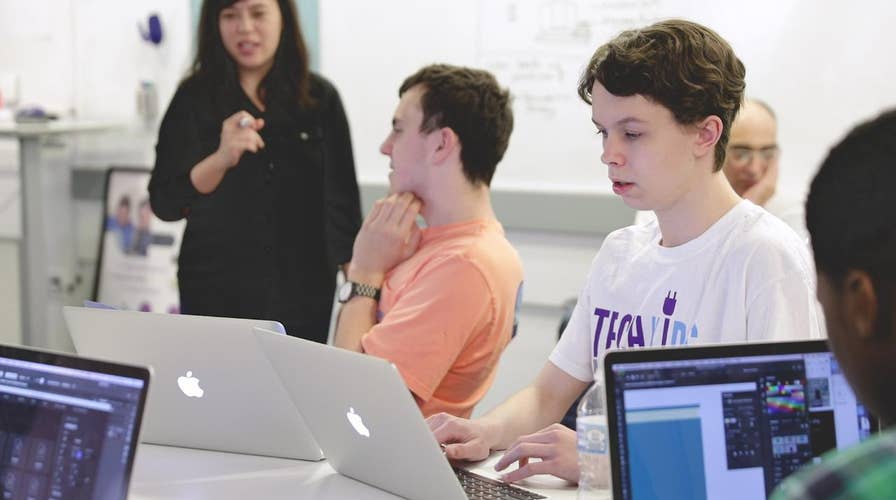Teens with autism become digital media producers
Some teens with autism spectrum disorder (ASD) may have a difficult time finding work experience before embarking on college, but one Brooklyn-based internship program is helping kids with ASD learn how to use technology and become their own digital media producers.
While the impact of technology on teens has its pros and cons in terms of social media bullying and video game violence, the educational and social benefits for those on the autism spectrum are unprecedented.
“Things in an abstract aren’t good for them [kids on the autism spectrum],” Beth Rosenberg, founder of Tech Kids Unlimited told Fox News. “Even the way we speak, we can speak very abstractly, using too much slang and lingo. But with a computer the code is very black and white, it’s a language and once you learn it, it never changes, it’s always the same.”
The Brooklyn-based non-profit internship program teaches teens with autism spectrum disorder (ASD) and other learning or social challenges a variety of technical and work-related skills. Benjamin Prud’ homme, 19, is enrolled in the program and is learning how to become a producer of digital media.
“I’ve been deeply interested in technology for my entire life and I just found it fascinating to just delve into the inner workings of computers, hardware and software," Prud’ homme, who has autism, told Fox News .
The program may not be as recognized as a top tech company in Silicon Valley, but Tech Kids Unlimited sets their interns up with real client projects that they can get paid for.
“Right now they’re working with a mixture of Photoshop, Illustrator and Pop,” Melody Loveless, a teacher and creative technology and community producer at Tech Kids Unlimited told Fox News. “They’ve done two projects with Adobe Premiere, which is pretty impressive, they’ve made one trailer and they’ve also edited a video series of tutorials on technology.”

Interns with ASD learn how to become digital media producers through programs like Photoshop and Adobe Premiere.
“It’s really a pre-workforce development program because the new numbers around autism is 1 in 58 and the prediction is that there will be 500,000 students [with ASD] entering the workforce in the next five years and what are we going to do with them?” Rosenberg said. “So we have to give these students, who love technology, lots and lots of skills, lots and lots of things to put on their resume so they can get jobs.”
Prud’ homme and his fellow interns recently designed a mobile app called EmpQuest that helps people living with ASD navigate the job application process.
Their innovative app won them first prize for concept in a mobile app contest sponsored by Simons Foundation Powering Autism Research for Knowledge (SPARK). The contest asked students to develop apps that address ASD-related challenges.

Prud’ homme and his fellow interns won a SPARK mobile app contest for EmpQuest, an app that helps people living with ASD navigate the job application process.
EmpQuest features a user’s avatar that is guided by an animated “Fairy Godmother” character through videos, lessons, and games about resume development, job interviews, and post-interview follow-up. After each lesson, users earn experience and virtual money that they can use to buy clothing in a fictional store to change the look of their avatar.
“Collecting apps are statistically very popular, so that’s why they came up with the idea that when you progress through the app you can collect coins so you can buy clothes,” Loveless said. “Everything they did was heavily researched, nothing was done just because, which is just a great design skill, that’s what makes great designers, so I’m really proud of them for that.”
Autism is defined as a group of complex neurodevelopment disorders characterized by repetitive and characteristic patterns of behavior and difficulties with social communication and interaction, according to the National Institute of Neurological Disorders and Stroke.
Through their research, Prud’ homme and his team discovered that “35 percent of autistic individuals get into college, and 80 percent of those who do get into college and graduate are unemployed.”
“Our goal was to really improve these statistics and lower the numbers,” Matthew Palermo, an intern at Tech Kids Unlimited, told Fox News.
Some experts say people with ASD may gravitate towards technology because of its predictability.
"We have a set of expectations of what happens when we click on this, right? When I click on start, the menu should pop, when I X it out its going to do this. And life is not like that, life is just confusing and technology is predictable and so that can maybe help build confidence, give them more agency to maybe try things that they haven’t tried before in a safe technological space versus the outside world,” Loveless said.
"I use my laptop pretty much every day whether its browsing the web, watching videos and etc. Something in the computer realm always interested me,” Palermo said. “I like video editing but designing the app and seeing what works and what doesn’t is honestly pretty cool.”
More advocates in the autism community are pushing for neurodiversity, a concept where brain-based conditions like autism aren’t seen as “abnormal,” but rather as a variation of the human brain.
Prud’ homme is going to be a freshman at Vassar College next year and Palermo will start at Rochester Institute of Technology, majoring in new media interactive development.
“I hope that one day, diversity and neuro-diversity is just accepted as the norm in society. But we're not at that point yet,” Rosenberg said. “So until we get to that point we’re going to continue fighting that uphill battle to show the world that our students are incredibly talented and incredibly capable.”









































